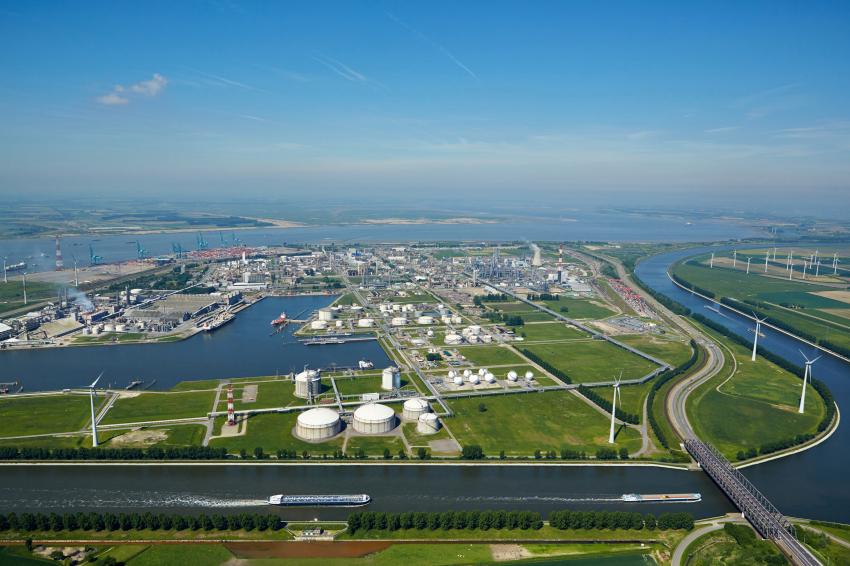Air Liquide and BASF Win EU Funds for Antwerp CCS Project
The two companies’ KairosC partnership is one of seven successful large-scale projects chosen (from more than 300 applications) to receive the EU aid. It will part of a larger scheme being stemmed jointly by Antwerp@C, a consortium of the Port of Antwerp and leading chemical and energy companies engaged there, of which Air Liquide and BASF are founding members.
Last year, Antwerp@C nailed down two EU grants worth nearly € $9million through the Connecting Europe Facility (CEF) allotment for Trans-European Energy Networks. These monies will go toward financing studies to build an export terminal for liquid CO2 in addition to the CO2 pipeline in the Antwerp port, as well as a CO2 cross-border pipeline to the Netherlands, where the captured carbon may be stored offshore.
Foremost goal of the cooperation between the topline French industrial gas group and the German chemical giant is to “significantly reduce” CO2 emissions at the Belgian site. Avoiding 14.2 million t of CO2 over the first 10 years of operation will significantly contribute to the EU’s goal of becoming climate neutral by 2050, the partners believe.
In the first phase, Air Liquide will use its patented Cryocap technology to capture emissions from production plants, while BASF will employ its Sorbead solution for drying the CO2. The project is planned to be operational in 2025. The consortium of industrial companies with an operational base in the port aims to halve CO2 emissions versus current levels by 2030.
The EU said the large-scale CO2 capture layout project will be a “first-of-its-kind” multi-feed scheme” that will optimize and integrate CO2 capture and purification from five different BASF production units in the Antwerp integrated network. These facilities would include two hydrogen plants, two ethylene oxide (OE) plants and one ammonia plant.
Air Liquide and BASF said Kairos@C will pave the way for the next phases of carbon abatement in the port of Antwerp. The project will also be connected to shared CO2 transport and export infrastructures, including the planned first-of-its-kind CO2 liquefaction and export terminal.
Especially for BASF’s Antwerp site, which has direct sea access, CCS is an attractive solution to reduce CO2 emissions from production processes on an industrial scale within a relatively short timeframe, said BASF CEO Martin Brudermüller. Receiving the EU funding is an essential milestone in making a final investment decision and starting the execution of the project, he added.
Both BASF and Air Liquide aim to reach carbon neutrality by 2050, in line with the objectives of the EU Green Deal.
Author: Dede Williams, Freelance Journalist





